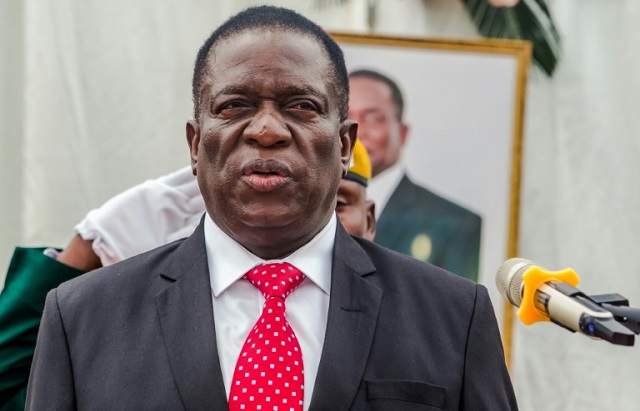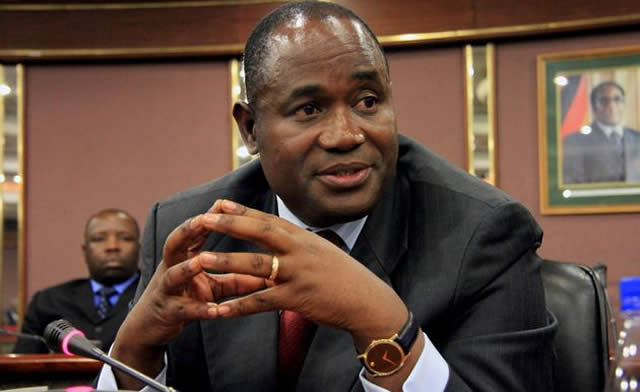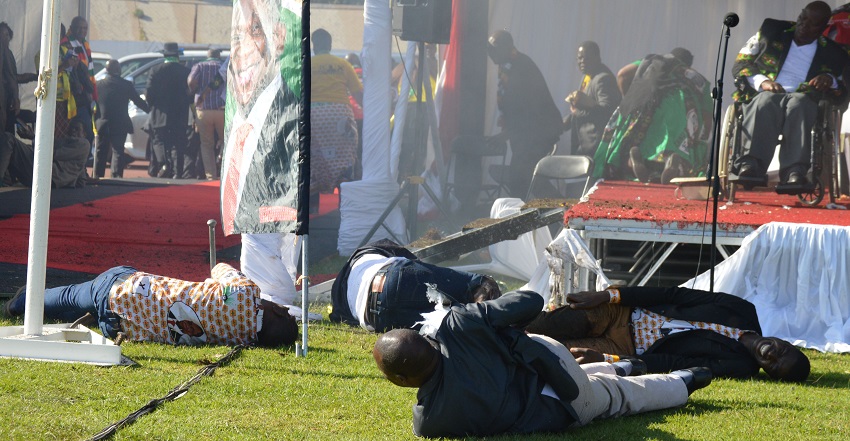EDITORIAL COMMENT: President Mnangagwa sets tone for devolution

The senseless bombing at a Zanu-PF rally at White City Stadium in Bulawayo that injured 49 people on Saturday, two of whom died in hospital on Sunday and yesterday, overshadowed some very essential messages that ruling party presidential candidate, Cde Emmerson Mnangagwa, delivered for Matabeleland region.
He addressed his first campaign rally in Matabeleland as a presidential candidate on Friday at Pelandaba Stadium in Gwanda. On Saturday he was in Bulawayo at White City Stadium. Both rallies were oversubscribed.
Between 2000 and 2012, Matabeleland was a stronghold for MDCs but the tide turned in the 2013 elections when the ruling party won all the 13 seats in Matabeleland South and did well in Matabeleland North. The party won seven in Matabeleland North while the MDC-T won six. This was a remarkable improvement as in the 2008 elections, the revolutionary party had four seats in the province, MDC-T had five, and MDC had three while an independent candidate won the 13th one. Bulawayo has remained in opposition hands. In 2013, as in previous elections since 2000, the ruling party lost in all the 12 constituencies although it got higher votes when compared to the 2000, 2005, 2006 and 2008 elections.
Zanu-PF hopes to perform better next month on the back of the broad delivery by the new dispensation.
On Friday, President Mnangagwa had a message that resonates well with Matabeleland region — that of devolution of power, a system of government under which central government gives up some of its powers to provincial governments. He restated that position on Saturday in Bulawayo. In addition, he spoke at length, not just about the need for the Government to revive industry in Bulawayo, but actually detailed tangible progress that his administration has achieved since November.
“We must now obey our constitution. In our constitution there is a provision which provides for the decentralisation of central government, that we have done,” said President Mnangagwa at Pelandaba Stadium.
“There is another decentralisation of power that has not been done called devolution which is separate from decentralisation. Devolution would require the surrendering of some amount of power to the provinces under the provincial councils in terms of our constitution to give provinces authority to manage their economies and then the provincial ministers’ role will change; it will be an economic role. They must ensure that the GDP of their provinces grows, they must look at the resources of their provinces and find best ways of exploiting these resources to benefit their respective provinces.”
Chapter 14, section 264 of the Constitution provides for devolution of authority, a system of governance whose inclusion in the supreme law came about, thanks to a spirited campaign by the people of Matabeleland.
In this governance system central government transfers legislative, executive, administrative and financial decision-making authority to local governments that have clear and legally recognised jurisdictions within which they provide public services to constituents to whom they are accountable.
Devolution of power has a number of advantages. It creates and strengthens more independent levels of government that perform well defined functions.
Because provinces have greater authority in running their affairs, the people can claim more ownership of the way they are governed. It minimises complaints over unfair distribution of wealth. It reduces bureaucracy as it brings government services closer to the people.
In a 2015 paper, The Inevitable: Devolution in Zimbabwe — From Constitution-Making to the Future, a local academic, Davison Muchadenyika said devolution is advantageous in that it builds “a strong and effective developmental state. As such, it is not an attempt to dismantle the state; rather, it matches roles to the state’s capacities. By sharing functions between central and devolved governments, the goal is to improve service delivery and advance socio-economic development.”
President Mnangagwa made it clear that devolution of power will be one of the priorities of his Government post-July 30 elections which he and his party Zanu-PF are widely seen winning. This is a very important message that, sadly, was drowned in the unfortunate carnage we witnessed in Bulawayo on Saturday.
In addition to his pledge on devolution, the President said Ekusileni Medical Centre, which has been closed for 17 years should be opened by 15 July. The state-of-the-art facility has been a veritable white elephant built through the hard work of former Vice-President Dr Joshua Nkomo. It was opened in 2001, two years after the icon’s death but soon shut down. President Mnangagwa announced on Saturday that an Indian firm, Sharda Group of Hospitals, would be on-site mid next month, a development expected to see the facility opening soon after.
The President has shown over the past seven months that he is a man of his word; a man of action not the empty rhetoric of the past. The people of Matabeleland can, therefore, look forward with hope for that important part of the constitution to be implemented and their hospital to be opened as they have been clamouring for over the years.








Comments